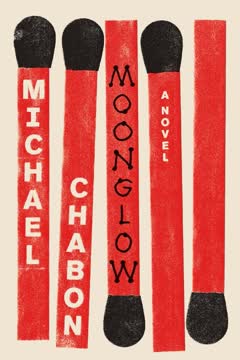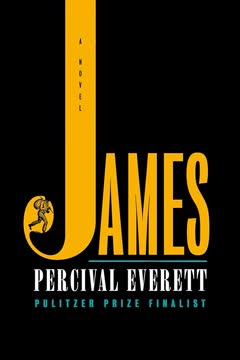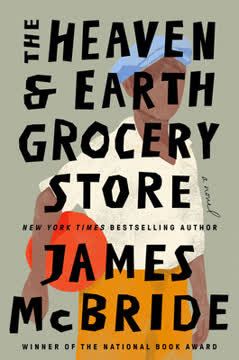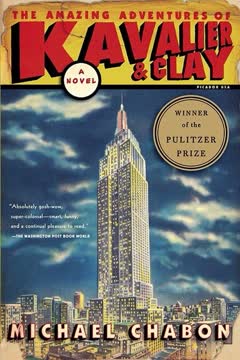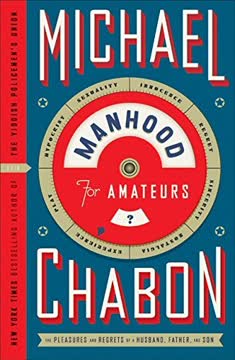Plot Summary
Deathbed Confessions Unleashed
As the Berlin Wall falls, the narrator sits by his grandfather's deathbed, where painkillers finally loosen decades of silence. The old man, once stoic and enigmatic, begins to pour out stories—some confessional, some cryptic, all tinged with regret and longing. The narrator, hungry for connection and understanding, listens as family secrets, wartime traumas, and the emotional architecture of a life are revealed in fragments. The grandfather's voice, once reserved for practicalities, now becomes a torrent of memory, guilt, and love, setting the stage for a journey through the tangled history of a family shaped by war, loss, and the search for meaning. The emotional weight is palpable: the urgency of a man running out of time, the ache of things left unsaid, and the hope that storytelling might offer a kind of redemption.
Philadelphia Boyhood and Survival
The grandfather's early years in South Philadelphia are marked by poverty, violence, and a fierce independence. He navigates a world of immigrant families, ethnic boundaries, and street fights, learning to survive through cunning and toughness. His mother, a pillar of strength, and his father, a failed shopkeeper, shape his worldview. The city is both a playground and a battleground, where curiosity leads to both wonder and cruelty—like the infamous incident of throwing a kitten out a window. These formative experiences teach him to read people, adapt, and fight dirty when necessary. The emotional undercurrent is one of resilience and loneliness, as the boy's wildness is both a shield and a source of isolation, foreshadowing the solitary tendencies that will define his adult life.
Witch's Cards and Family Secrets
In the 1960s, the narrator recalls time spent with his French grandmother, a Holocaust survivor with a mysterious past. She entertains him with stories spun from a secret deck of fortune-telling cards, blending fairy tales with dark European folklore. Her storytelling is both enchanting and unsettling, revealing a mind haunted by trauma and loss. The grandmother's moods swing between playful creativity and depressive withdrawal, leaving the young narrator both fascinated and frightened. The cards become a symbol of the family's hidden histories and the power of narrative to both reveal and obscure truth. The emotional tone is bittersweet, as the narrator senses the depth of his grandmother's suffering and the ways in which magic and make-believe serve as both escape and confession.
War Games and Explosives
The grandfather's journey through World War II begins with his enlistment as an Army engineer, where his technical skills and street smarts quickly set him apart. He forms a bond with Orland Buck, a demolition expert, and together they concoct a reckless plan to "blow up" the Key Bridge as a demonstration of military vulnerability. Their antics catch the attention of "Wild Bill" Donovan, who recruits them into the OSS, the precursor to the CIA. The grandfather's war is a mix of boredom, danger, and moral ambiguity, as he learns the arts of sabotage, espionage, and survival. The emotional arc is one of disillusionment and adaptation, as the idealism of youth gives way to the complexities of war and the compromises required to endure it.
Jail, Marriage, and Madness
After the war, the grandfather's life is marked by instability—failed business ventures, a troubled marriage to his haunted French wife, and the burden of mental illness. A violent outburst at work lands him in jail, while his wife's recurring psychosis, embodied by the terrifying hallucination of the "Skinless Horse," threatens to destroy their family. The couple's attempts at normalcy—a farmhouse in New Jersey, community theater, and raising their daughter—are continually undermined by trauma and secrets. The emotional landscape is fraught with shame, fear, and the desperate hope for healing, as the family teeters on the edge of collapse and the grandfather's stoic self-reliance is tested by forces beyond his control.
Lovers, Losses, and New Beginnings
The narrative shifts between generations, exploring the tangled relationships between parents, children, and siblings. The grandmother's past is revealed to be a labyrinth of loss, survival, and reinvention, while the grandfather's brother Ray drifts from rabbi to pool hustler, embodying both charm and unreliability. The family's attempts to rebuild—through new jobs, new homes, and new loves—are shadowed by the lingering effects of war and madness. Moments of tenderness and forgiveness emerge, but so do betrayals and disappointments. The emotional tone is one of cautious optimism, as the characters seek connection and meaning amid the ruins of their histories, always aware of how easily happiness can slip away.
Model Rockets and Moon Gardens
The grandfather's obsession with rockets and space travel becomes both a literal and symbolic escape from earthly suffering. He pours his energy into building intricate models, culminating in a fantastical "moon garden" where his family can live free from pain and memory. The moon becomes a recurring motif—a place of longing, exile, and impossible hope. The grandfather's technical prowess and imagination offer solace, but also highlight the limits of control and the inevitability of loss. The emotional resonance is profound: the yearning for transcendence, the beauty of dreams, and the bittersweet knowledge that even the most elaborate refuges cannot shield us from grief.
The Skinless Horse Returns
The grandmother's mental illness resurges with terrifying force, embodied by the return of the Skinless Horse—a hallucination that drives her to set fire to the family's beloved hickory tree. The event is both a literal and symbolic conflagration, exposing the fragility of the family's peace and the depth of the grandmother's suffering. The grandfather's anger and helplessness boil over, but ultimately give way to compassion and resignation. The daughter, caught in the crossfire, absorbs the trauma in silence, her own memories fragmented and unreliable. The emotional impact is devastating, as the family confronts the limits of love and the inescapable legacy of pain.
Mothers, Daughters, and Inheritance
The story delves into the complex relationship between mothers and daughters, exploring how trauma, silence, and resilience are passed down. The narrator's mother, shaped by her own mother's madness and survival, becomes a figure of stoic endurance—pragmatic, levelheaded, and fiercely protective. Yet beneath her strength lies a well of unspoken sorrow and longing. The inheritance of secrets, both genetic and emotional, becomes a central theme, as each generation grapples with the burdens and gifts of the past. The emotional tone is one of empathy and understanding, as the narrator seeks to honor the struggles of those who came before while forging his own path toward healing.
OSS, Spies, and Sabotage
The grandfather's wartime service in the OSS is a whirlwind of clandestine operations, inventive sabotage, and encounters with both heroism and horror. He develops ingenious devices—garrotes, derailers, and chemical tricks—while navigating the ethical gray zones of intelligence work. His partnership with the eccentric Aughenbaugh, a donut-loving intellectual, provides both camaraderie and comic relief amid the chaos. The war's end brings no easy resolution, as the grandfather is confronted with the realities of Nazi atrocities and the complicity of scientists like Wernher von Braun. The emotional arc is one of growing cynicism and the struggle to reconcile idealism with the compromises of survival.
Rockets, Nazis, and Nordhausen
The grandfather's pursuit of von Braun leads him to Nordhausen, where he witnesses the horrors of the Mittelwerk rocket factory and the Dora concentration camp. The revelation that the dream of space travel was built on a foundation of suffering and death shatters his faith in both science and humanity. The encounter with von Braun, who later becomes a celebrated figure in America's space program, leaves the grandfather embittered and disillusioned. The emotional climax is one of moral reckoning, as the grandfather must choose between vengeance and duty, and ultimately confronts the limits of justice in a world where evil often goes unpunished.
Prison, Regret, and Redemption
After his violent outburst, the grandfather serves time in Wallkill Prison, a place of both punishment and unexpected community. He befriends Dr. Storch, a German dentist haunted by his own failures, and navigates the complex social dynamics of prison life. The construction of model rockets becomes a means of redemption and connection, as the grandfather channels his skills into creation rather than destruction. The emotional journey is one of humility, regret, and the slow work of forgiveness—of oneself and others. The experience of prison, with its routines and small mercies, becomes a crucible in which the grandfather's character is both tested and transformed.
The Last Launch
As the grandfather's life draws to a close, the narrative circles back to the present, where the narrator and his mother grapple with the aftermath of his death. The family's history—its secrets, traumas, and moments of grace—coalesces into a mosaic of memory and meaning. The grandfather's models, stories, and silences become his true legacy, offering both comfort and challenge to those left behind. The emotional resolution is one of acceptance: that life is built from stories, both true and invented, and that love endures in the spaces between what is said and what is left unsaid. The final image is one of hope—a family, battered but unbroken, looking up at the moon and finding, in its cold light, a measure of peace.
Characters
The Grandfather
The grandfather is the emotional and narrative center of the story—a man shaped by poverty, war, and the burdens of family. His early life in Philadelphia instills in him a fierce independence and a distrust of sentimentality. As a soldier, engineer, and OSS operative, he navigates the moral ambiguities of war with pragmatism and ingenuity, but is haunted by the horrors he witnesses and the compromises he makes. His marriage to a traumatized French survivor is both a refuge and a source of pain, as he struggles to protect his family from forces beyond his control. In old age, his silence gives way to confession, revealing a deep well of regret, love, and longing. His obsession with rockets and the moon symbolizes both his desire for escape and his enduring hope for transcendence. Over the course of the narrative, he evolves from a man defined by stoicism and secrecy to one capable of vulnerability and connection, leaving a legacy of both wounds and wisdom.
The Grandmother (Mamie)
The grandmother is a complex figure—beautiful, charismatic, and deeply scarred by her experiences during the Holocaust and its aftermath. Her past is a labyrinth of loss, reinvention, and survival, marked by the deaths of her family, the trauma of war, and the necessity of adopting new identities. She channels her pain into storytelling, using a deck of fortune-telling cards to weave tales that are both enchanting and disturbing. Her mental illness, embodied by the hallucination of the Skinless Horse, is both a source of terror and a testament to her resilience. She oscillates between moments of creative brilliance and periods of debilitating depression, her moods shaping the emotional climate of the family. Despite her suffering, she remains a figure of love and inspiration, her legacy carried forward in the stories and memories of those who survive her.
The Narrator (Michael Chabon)
The narrator is both participant and observer, piecing together the fragmented history of his family through stories, memories, and confessions. Driven by a desire to understand the forces that shaped his parents and grandparents, he becomes a detective of the past, sifting through secrets, silences, and contradictions. His relationship with his grandfather is central—a mix of admiration, frustration, and longing for connection. As he uncovers the complexities of his family's history, he grapples with questions of identity, inheritance, and the meaning of storytelling itself. His journey is one of empathy and self-discovery, as he learns to accept the ambiguities and imperfections of those he loves, and to find meaning in the act of remembering.
The Mother
The narrator's mother is a figure of quiet strength and resilience, shaped by the traumas of her parents and her own experiences of abandonment and loss. Raised amid madness and instability, she develops a pragmatic, levelheaded approach to life, often suppressing her own emotions in favor of action and responsibility. Her relationship with her mother is fraught with both love and pain, as she struggles to reconcile the woman who nurtured her with the one who sometimes disappeared into madness. As a mother herself, she is fiercely protective, determined to break the cycle of suffering. Her silence is both a shield and a wound, and her journey is one of learning to forgive, both herself and those who failed her.
Uncle Ray
Uncle Ray is the grandfather's younger brother—a prodigy turned pool hustler, whose charm and wit mask a deep sense of dislocation and loss. Once the pride of the family, he abandons the rabbinate for a life of gambling and schemes, drifting through relationships and business ventures with equal parts luck and recklessness. His relationship with the family is both supportive and destabilizing, as he alternates between moments of generosity and episodes of betrayal. Psychologically, Ray embodies the tension between faith and cynicism, tradition and rebellion. His presence in the narrative serves as both a cautionary tale and a reminder of the enduring bonds of family, however imperfect.
Dr. Storch
Dr. Storch is a German émigré and fellow inmate at Wallkill Prison, whose past is clouded by suspicion and misunderstanding. Though not a Nazi, he becomes the target of bullying and isolation, his accent and mannerisms marking him as an outsider. His friendship with the grandfather is tentative and fraught, as both men grapple with guilt, shame, and the need for connection. Storch's suicide attempt and subsequent rescue become a turning point, prompting the grandfather to confront his own capacity for empathy and responsibility. Storch represents the possibility of redemption and the importance of compassion, even in the most unlikely circumstances.
Sally Sichel
Sally enters the grandfather's life in his final years, offering companionship, humor, and a second chance at love. An accomplished painter and recent widow, she brings her own history of loss and resilience to the relationship. Her presence challenges the grandfather to let go of old patterns, embrace vulnerability, and find joy amid the shadows of mortality. Their romance is marked by both tenderness and realism, as they navigate the complexities of aging, illness, and the legacies of the past. Sally's refusal to be rescued, and her insistence on mutual respect, become a model for the kind of love that endures beyond youth and tragedy.
Wernher von Braun
Von Braun is both a historical figure and a personal obsession for the grandfather—a genius whose dream of space travel is tainted by complicity in Nazi atrocities. His transformation from SS officer to American hero embodies the moral ambiguities of the twentieth century, raising questions about the cost of progress and the nature of redemption. For the grandfather, von Braun represents both the allure and the danger of unchecked ambition, as well as the painful reality that justice is often elusive. Psychologically, von Braun is a mirror for the grandfather's own compromises and regrets, forcing him to confront the limits of forgiveness and the complexity of human motivation.
The Skinless Horse
The Skinless Horse is not a character in the traditional sense, but a recurring hallucination that haunts the grandmother and, by extension, the entire family. It symbolizes the enduring impact of trauma, the ways in which pain and memory can become monstrous and inescapable. The Horse's appearances mark moments of crisis and unraveling, serving as both a warning and a catalyst for change. Psychologically, it represents the family's collective wounds—the things that cannot be spoken, only endured. Its presence is a reminder that some scars never fully heal, and that the past, however repressed, always finds a way to return.
The Narrator's Father
Though less central than other characters, the narrator's father is a figure of both fascination and frustration—a man whose charm and intelligence are undermined by unreliability and self-destruction. His absences and failures cast a long shadow over the narrator's childhood, shaping his understanding of love, loss, and the search for meaning. The father's relationship with the family is marked by both tenderness and disappointment, and his legacy is one of both caution and empathy. Psychologically, he embodies the dangers of denial and the importance of facing one's own limitations.
Plot Devices
Nonlinear Narrative and Fractured Memory
The novel's structure mirrors the workings of memory itself—fragmented, nonlinear, and recursive. Stories are told out of order, with the past bleeding into the present and vice versa. The use of multiple narrators and points of view allows for a kaleidoscopic exploration of family history, where truth is always provisional and subject to revision. This narrative device emphasizes the unreliability of memory, the slipperiness of storytelling, and the ways in which trauma disrupts linear understanding. Foreshadowing and callbacks are used to create a sense of inevitability and interconnectedness, while the recurring motifs of rockets, the moon, and fortune-telling cards serve as both literal and symbolic anchors. The result is a tapestry of voices and images that capture the complexity of inheritance, the persistence of pain, and the redemptive power of narrative.
Analysis
Moonglow is a profound meditation on the interplay between history, memory, and imagination—a novel that blurs the boundaries between fact and fiction, autobiography and invention. At its core, it is a story about the ways in which trauma, both personal and collective, shapes families across generations. Through the lens of one family's journey—from the streets of Philadelphia to the battlefields of Europe, from the shadow of the Holocaust to the promise of the moon landing—Chabon explores the costs of survival, the burdens of silence, and the fragile hope of redemption. The novel's nonlinear structure and mosaic of voices reflect the fragmented nature of memory and the impossibility of ever fully knowing the past. Yet, in the act of storytelling—whether through fortune-telling cards, model rockets, or deathbed confessions—there is a possibility of connection, understanding, and healing. Moonglow ultimately suggests that while we may never escape the gravity of our histories, we can find meaning, beauty, and even peace in the stories we tell and the love we share.
Last updated:
Review Summary
Moonglow receives mostly positive reviews, praised for its masterful storytelling, complex characters, and exploration of family history. Readers appreciate Chabon's lyrical prose and ability to blend fact and fiction. The novel's non-linear structure and focus on the narrator's grandfather's deathbed confessions captivate many. Some find the book slow-paced or overly detailed at times. Overall, reviewers commend Chabon's skill in weaving together themes of love, war, mental illness, and Jewish identity, creating a rich and emotionally resonant narrative.
Similar Books
Download PDF
Download EPUB
.epub digital book format is ideal for reading ebooks on phones, tablets, and e-readers.
